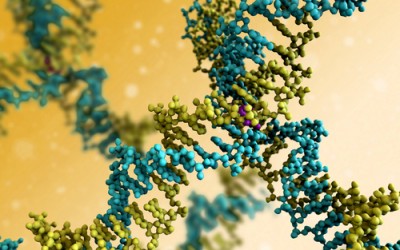AstraZeneca and MedImmune to harness the power of the Secretome
Posted: 11 December 2015 | Victoria White | No comments yet
The companies have joined WCPR to develop new technologies for biologics production and to identify new targets for disease research in the ground-breaking area of the Secretome…


AstraZeneca and MedImmune have entered a three-year collaboration with the newly established Wallenberg Centre for Protein Research (WCPR).
The collaboration aims to develop new technologies for biologics production and to identify new targets for disease research in the ground-breaking area of the Secretome – research into all proteins that are secreted by a cell or that are exposed to the outside of the cell from within the cell membrane.
As part of the collaboration, AstraZeneca’s Innovative Medicines biotech unit (iMED) will screen the Secretome library using the company’s proprietary assays to identify new protein-based targets for compound development across a range of diseases. The collaboration will also see the creation of new ‘cell factories’ for the large-scale production of therapeutic proteins to support MedImmune’s deep and diversifying pipeline.
Biomarkers are redefining how precision therapies are discovered, validated and delivered.
This exclusive expert-led report reveals how leading teams are using biomarker science to drive faster insights, cleaner data and more targeted treatments – from discovery to diagnostics.
Inside the report:
- How leading organisations are reshaping strategy with biomarker-led approaches
- Better tools for real-time decision-making – turning complex data into faster insights
- Global standardisation and assay sensitivity – what it takes to scale across networks
Discover how biomarker science is addressing the biggest hurdles in drug discovery, translational research and precision medicine – access your free copy today
Secretome accounts for 1/3 of human proteins
Pascal Soriot, AstraZeneca Chief Executive, said, “We’re tremendously excited to be part of this innovative collaboration as we explore what science can do to advance medical research. Harnessing the power of the Secretome in this unprecedented way will help us to identify new biomarkers, drug targets and ultimately develop next-generation biological treatments.”
The Secretome accounts for approximately a third of all human proteins, which play a major role in most biological processes including those involved in cardiac regeneration, the maintenance of functioning cells for glucose balance, cancer proliferation and migration. This group of proteins is therefore considered to be an invaluable source for identifying new biomarkers, drug targets and for developing novel biologics.
Related topics
Biomarkers, Cell-based assays, Drug Targets
Related organisations
AstraZeneca, MedImmune








